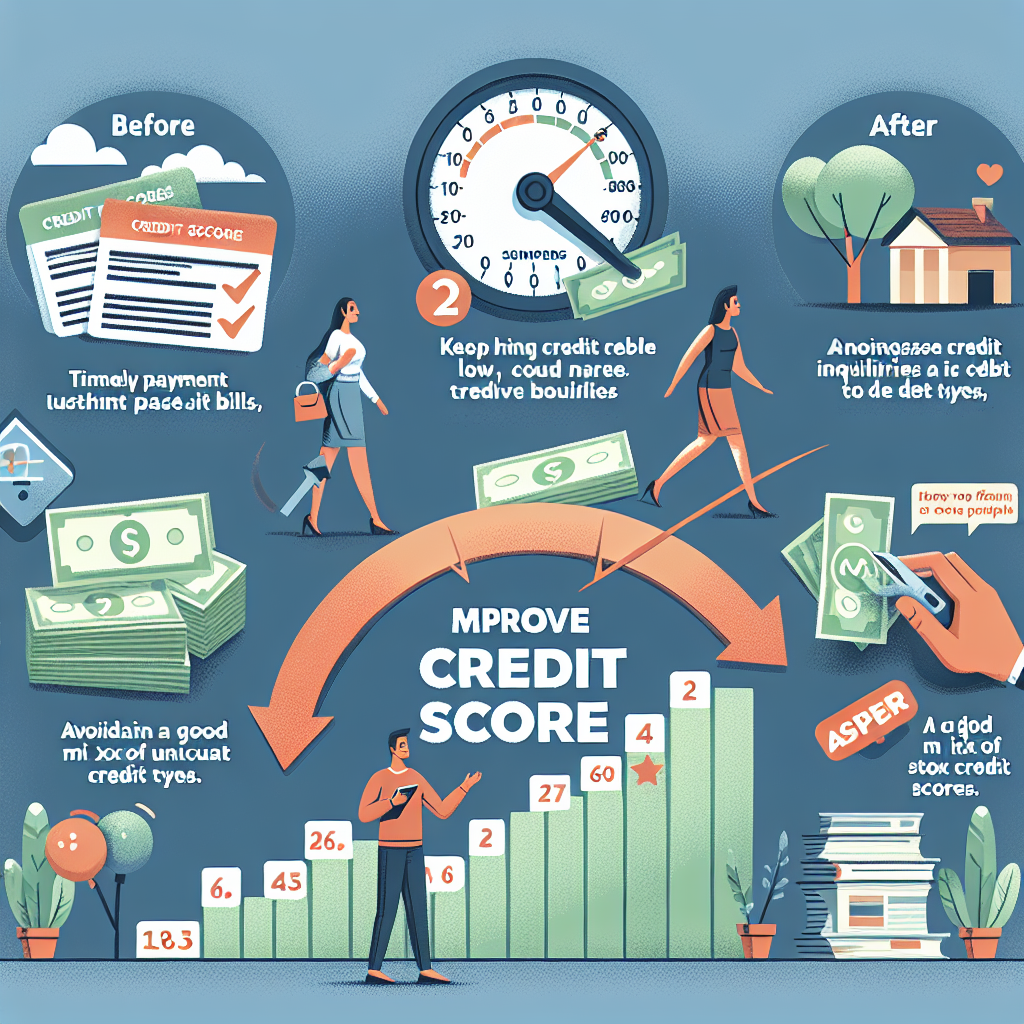Improving your credit score after undergoing debt relief can feel like a daunting task, but it’s an essential step toward regaining financial stability and peace of mind. By understanding your post-relief credit score, implementing strategies for rebuilding financial health, adopting effective budgeting and spending habits, and continuously monitoring your progress, you can steadily enhance your credit profile. This article provides a comprehensive guide to help you navigate this journey successfully.
Understanding Your Post-Relief Credit Score
After debt relief, your credit score may have taken a hit, leaving you wondering how to start rebuilding. The first step is to understand how debt relief affected your credit score. Generally, debt relief can result in a lowered score due to the reduction in reported debt amounts, potentially late payments, and settlements showing on your credit report. Recognizing these changes is crucial to moving forward strategically.
It’s important to obtain a copy of your credit report from each of the three major credit bureaus: Experian, TransUnion, and Equifax. Your credit report will provide detailed insights into your financial standing and highlight areas that need improvement. Ensure you review your report for any discrepancies or inaccuracies, as errors can negatively impact your credit score. You can obtain a free credit report once a year from AnnualCreditReport.com (opens in a new tab).
Understanding the factors influencing your credit score, such as payment history, credit utilization, length of credit history, new credit, and credit mix, will empower you to target specific areas for improvement. Being informed about these components allows you to focus on what will have the most significant impact on your credit score in the shortest amount of time.
Strategies for Rebuilding Financial Health
Rebuilding your credit score requires a strategic approach, starting with timely payments. Timely payments account for a significant portion of your credit score, so it’s essential to pay all your bills on time. Setting up automatic payments or reminders can help you maintain a consistent payment history, which is crucial for improving your credit score over time.
Another strategy is to manage your credit utilization ratio. This ratio is the amount of credit you’re using compared to your credit limit. Ideally, try to keep your credit utilization under 30%. If possible, pay down existing credit card balances and avoid accruing new debt. Additionally, consider asking for higher credit limits, which can help lower your overall utilization ratio, positively affecting your credit score.
Building or re-establishing credit lines can also be beneficial. Start by applying for a secured credit card or becoming an authorized user on a creditworthy family member’s card. These options allow you to demonstrate responsible credit behavior and gradually rebuild your credit profile. For more information, check out our article on secured credit cards and how they can aid in credit recovery.
Effective Budgeting and Spending Habits
Adopting effective budgeting and spending habits plays a critical role in improving your credit score after debt relief. Begin by creating a comprehensive budget that accounts for all your income, expenses, and financial goals. This budget should prioritize debt repayment, savings, and discretionary spending. Our guide on creating a sustainable budget offers detailed steps to help you get started.
Track your spending regularly to ensure you’re adhering to your budget and identify areas where you can cut back. This practice not only helps in reducing unnecessary expenses but also ensures that you have enough funds to manage your debts and other financial obligations. Numerous budgeting apps and tools can assist in tracking and managing your expenses efficiently.
Another effective habit is to build an emergency fund. Set aside a small portion of your income each month to create a financial buffer for unexpected expenses. This fund can prevent you from relying on credit cards or loans in emergencies, reducing the risk of accumulating new debt. For tips on building an emergency fund, explore our financial planning resource.
Monitoring Your Progress and Credit Reports
Continuous monitoring of your progress and credit reports is essential for sustaining and improving your credit score. Regularly reviewing your credit reports ensures that you stay informed about your credit standing and track improvements over time. Any discrepancies or errors should be disputed promptly to prevent them from affecting your score.
Utilize credit monitoring services that alert you to changes in your credit report, such as new accounts, inquiries, or significant shifts in your score. Many services, like Credit Karma (opens in a new tab), offer free tools to help you keep track of your credit health without impacting your score.
Set specific milestones and goals to gauge your progress effectively. Whether it’s achieving a certain credit score or reducing your credit utilization, having tangible targets can motivate you to maintain good financial habits. Our goal-setting guide provides strategies for setting and achieving financial milestones.
Improving your credit score post-debt relief is a journey that requires patience, diligence, and strategic efforts. By understanding your current credit situation, employing effective strategies, maintaining disciplined budgeting habits, and keeping a close watch on your progress, you can successfully rebuild your credit and secure a healthier financial future. Remember, every positive action you take contributes to improving your overall credit profile, bringing you closer to financial freedom. For further reading, check out our comprehensive guide on financial recovery.
Emergency debt help servicesHow to qualify for a consumer proposalAffordable debt repayment plansRelevant LinkRelevant LinkRelevant Link
